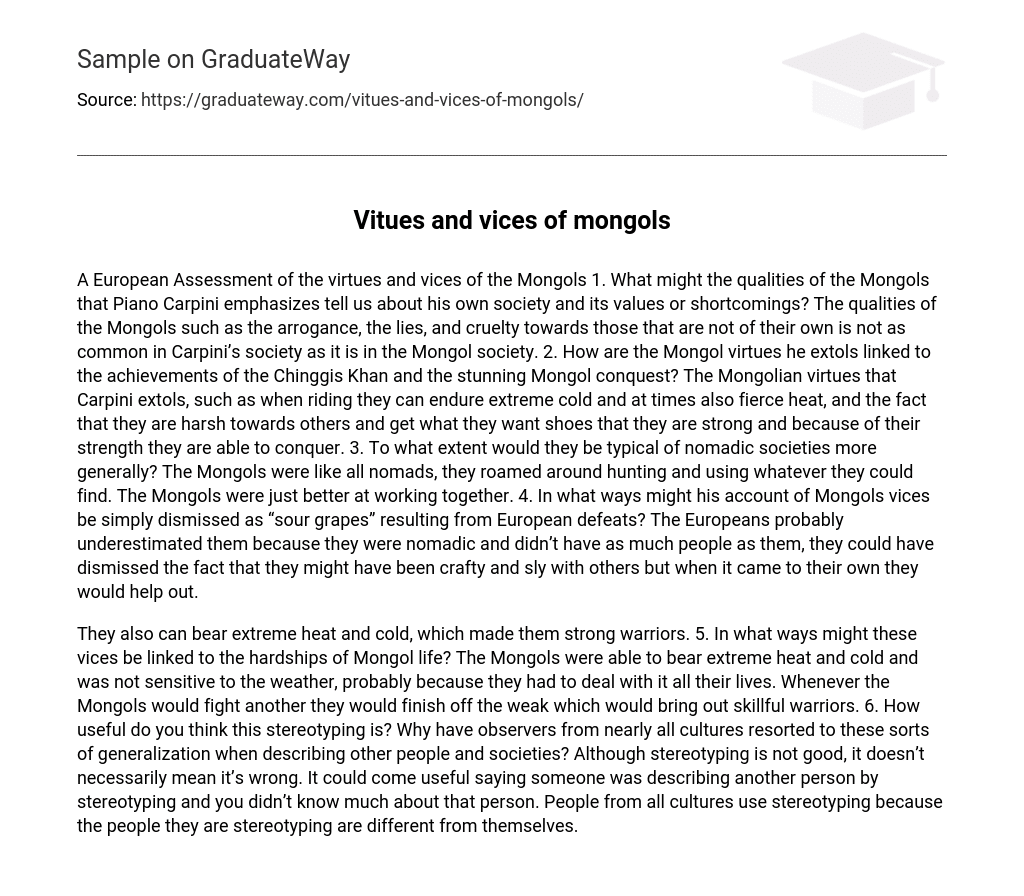A European Assessment of the virtues and vices of the Mongols 1. What might the qualities of the Mongols that Piano Carpini emphasizes tell us about his own society and its values or shortcomings? The qualities of the Mongols such as the arrogance, the lies, and cruelty towards those that are not of their own is not as common in Carpini’s society as it is in the Mongol society. 2. How are the Mongol virtues he extols linked to the achievements of the Chinggis Khan and the stunning Mongol conquest? The Mongolian virtues that Carpini extols, such as when riding they can endure extreme cold and at times also fierce heat, and the fact that they are harsh towards others and get what they want shoes that they are strong and because of their strength they are able to conquer. 3. To what extent would they be typical of nomadic societies more generally? The Mongols were like all nomads, they roamed around hunting and using whatever they could find. The Mongols were just better at working together. 4. In what ways might his account of Mongols vices be simply dismissed as “sour grapes” resulting from European defeats? The Europeans probably underestimated them because they were nomadic and didn’t have as much people as them, they could have dismissed the fact that they might have been crafty and sly with others but when it came to their own they would help out.
They also can bear extreme heat and cold, which made them strong warriors. 5. In what ways might these vices be linked to the hardships of Mongol life? The Mongols were able to bear extreme heat and cold and was not sensitive to the weather, probably because they had to deal with it all their lives. Whenever the Mongols would fight another they would finish off the weak which would bring out skillful warriors. 6. How useful do you think this stereotyping is? Why have observers from nearly all cultures resorted to these sorts of generalization when describing other people and societies? Although stereotyping is not good, it doesn’t necessarily mean it’s wrong. It could come useful saying someone was describing another person by stereotyping and you didn’t know much about that person. People from all cultures use stereotyping because the people they are stereotyping are different from themselves.





